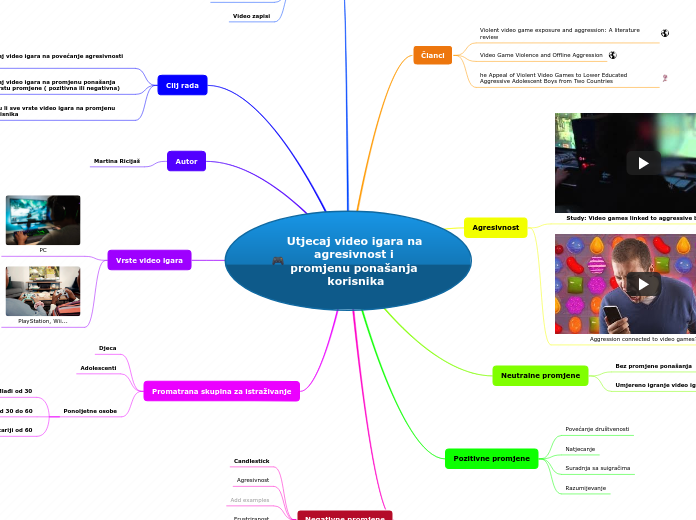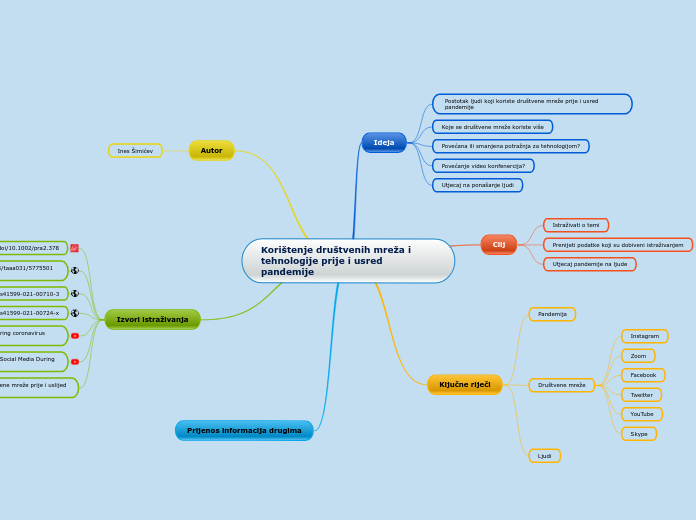Utjecaj video igara na agresivnost i promjenu ponašanja korisnika
A noun is a word that functions as the name of some specific thing or set of things, such as living creatures, objects, places, actions, qualities, states of existence, or ideas.
Negativne promjene
Compound nouns are words where two nouns have been stuck together to make a new noun. Compound nouns should be written as one word, without a hyphen.
Tempermentnost
Nerazumijevanje
Prenaglašena želja za pobjedom
Frustriranost
Add examples
Candlestick
Promatrana skupina za istraživanje
Generic nouns are nouns that are part of a generic statement. Generic nouns can be singular or plural. The opposite of generic nouns is collective nouns.
The difference between definite/indefinite and generic nouns is that in the sentence there must be a blanket statement or question.
Ponoljetne osobe
Stariji od 60
Osobe od 30 do 60
Mlađi od 30
Adolescenti
Djeca
Vrste video igara
Common nouns are words for people, places or things that aren’t specific (as opposed to a proper noun which refers to only one person, place or thing).
Common nouns can be countable or uncountable, singular or plural.
PlayStation, Wii...
PC
Autor
A concrete noun is a noun that can be identified through one of the five senses (taste, touch, sight, hearing, smell).
Martina Ricijaš
Cilj rada
Proper nouns are the names of specific people or places. They should always begin with a capital letter.
Istražiti utječu li sve vrste video igara na promjenu ponašanja korisnika
Istražiti utjecaj video igara na promjenu ponašanja korisnika te vrstu promjene ( pozitivna ili negativna)
Istražiti utjecaj video igara na povećanje agresivnosti korisnika
Resursi
Possessive nouns are nouns which possess something, normally another noun.
Video zapisi
Znanstveni radovi
Znanstveni članci
Mendeley
Pozitivne promjene
A noun which refers to a group of things/people.
Razumijevanje
Suradnja sa suigračima
Natjecanje
Povećanje društvenosti
Neutralne promjene
A noun which cannot be identified by using one of the five senses (taste, touch, sight, hearing, smell).
Umjereno igranje video igara
Bez promjene ponašanja
Agresivnost
Irregular nouns are nouns which don’t follow a spelling pattern when pluralized.
Aggression connected to video games?
Study: Video games linked to aggressive behavior
Članci
he Appeal of Violent Video Games to Lower Educated Aggressive Adolescent Boys from Two Countries
Video Game Violence and Offline Aggression
Violent video game exposure and aggression: A literature review






